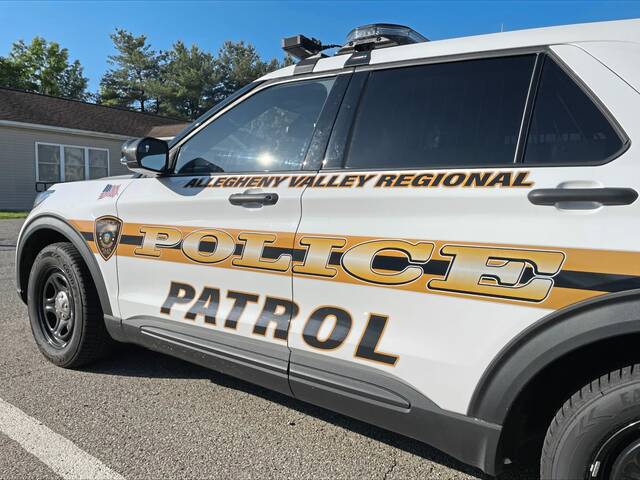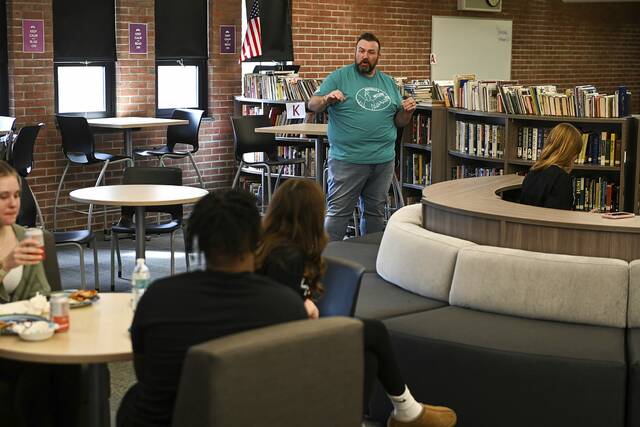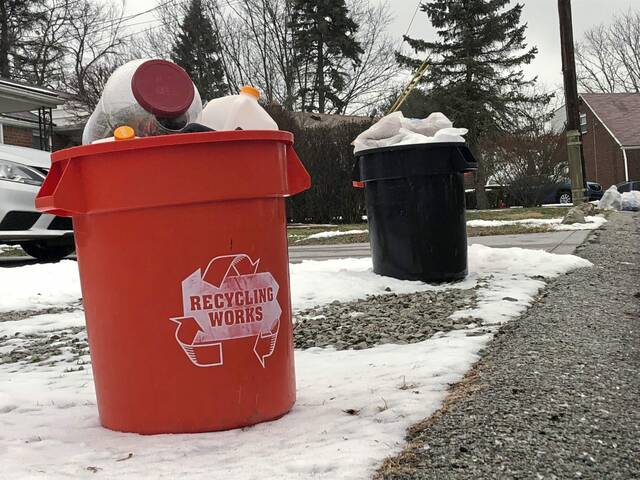Parent Pauline McKnight said she had to pull her teenage daughters from in-person classes at Highlands High School to protect them from being bullied and targeted because they are Black.
“My daughter was called a monkey and they both have been harassed by a male member of administration,” said McKnight, who transferred her children to the district’s Virtual Learning Academy.
“I had to pull them out so they could have peace. Now that they’re doing school from home they’re doing great.”
McKnight was among a group of parents on Monday who urged the school board to address what they called excessive and ongoing racial and disability-related discrimination in the district.
They were backed by the Urban League of Pittsburgh and the Education Law Center, both of which have also called on district administrators to correct racial and disability biases through a specific action plan.
“As a parent, I was disheartened to see firsthand the trauma, shame and defeat suffered by students in a school district that is charged with the duty to educate, protect, empower and prepare our students for a bright future,” said Carlos Carter, Urban League president.
The action plan aims to foster a supportive environment where all students feel safe and supported, Carter said.
He said he hopes to work with the district to make changes that address systemic inequalities that could include an independent monitor, input from students, parents, district staff and the community, and code of conduct revisions, among other items.
Highlands alumni, parents and students identified cases of harassment, disproportionate discipline against Black students and failure to provide adequate supports for students with disabilities and approached the Urban League and Education Law Center about the issues, Carter said.
According to the federal Department of Education’s Civil Rights Data Collection, Black students at Highlands are suspended at higher rates than their peers.
In 2017-2018, the most recent year for which data is accessible, Black students made up about 9% of the student enrollment but made up 28% of students who received one or more out of school suspensions and 23% of students with disabilities who received out of school suspensions.
“It’s entirely too lopsided for a minority population to receive that many expulsions,” said Misty Woody, a Highlands parent and former school board member.
She held back tears speaking to the board and begged them to acknowledge the district’s challenges.
“It’s exhausting,” Woody said. “These percentages are likely undercounting the number of students who identify as Black and who have been suspended because the percentages do not include biracial students who were suspended.”
Superintendent Monique Mawhinney deferred comments to school board President Deb Lehew, who read a statement at the beginning of the meeting.
“While we are unable to comment on legal allegations in the letter, both the board and administration are committed to ensuring that all students feel comfortable attending school and feel they are treated appropriately and within requirements of the law,” Lehew said.
She cited initiatives in the district aimed at inclusivity, including Coffee Talks in the Community, student cabinet meetings, staff development on diversity, equity and inclusion, and the addition of an education equity policy.
The district’s policy committee will continue to review guidelines to ensure they meet the needs of the district, Lehew said.
Additional data reported by the district to the state showed that Black students are more likely to be referred to law enforcement than other students.
In the 2017-2018 school year, Black students made up about 30% of all reported referrals to law enforcement for students without disabilities.
Many of the referrals resulted in summary citations but had the potential for long-term consequences that affected college admission and whether students were able to get jobs, according to Urban League and Law Center representatives.
Several parents said their child was moved from in-person learning to the Highlands Virtual Academy (HVA) as a form of discipline without any hearing or notification process, according to the letter.
Woody, a supervisor with the advocacy group Allegheny Family Network, began tracking expulsion data in 2016 when her own children were affected by what she and others called a district handbook plagued with inequities.
Black students, including Woody’s daughter, were suspended for refusing to remove headbands or scarves that were being used to protect their hair.
“The student handbook language alone is discriminatory – singling out specific styling tools and protective hairstyle methods used by Black and brown students is wrong and violates the Crown Act of Allegheny County,” Woody said.
Allegheny Family Network hosted workshops for families to voice concerns and also conducted surveys throughout the district.
Students who were surveyed said they were excluded from learning time because they used hair accessories or clothing that they saw other students wearing without issue, Woody said.
Parents have appealed to the school board over the years to address the language in the dress code, and to investigate what they feel is targeting or excessive punishment for certain students, parent Christa Jones said.
“We want positive change and a positive environment for our kids,” Jones said.








